What Does Business Insurance Cover?
What is business insurance?
Business insurance acts as a security blanket for companies by way of coverage against sudden and unforeseen events such as property destruction, court cases, revenue deprivation, larceny, worker accidents or illnesses, and workers’ compensation. In short words: your business is reimbursed either in full or partially when regrettable circumstances take place – that’s why it is so important to ensure you are well protected! So think of business insurance as an extra layer between you and any potential risks.
What does business insurance cover?
Business insurance, sometimes referred to as commercial insurance, is not a specific type of policy rather an expansive umbrella term. As you start researching business protection coverage options, you may recognize that there are nearly as many forms of policies available for purchase as businesses exist in the world! Depending on your need and the selected plan -business insurance can provide coverages such as:
- Liability protection
- Lawsuits
- Theft
- Vehicle insurance
- Property damage
- Employee injuries/illnesses
- Workers’ comp
- Loss of income
- Customer injury
For a comprehensive safety net, you can purchase a Business Owner’s Policy (BOP). This insurance package bundles general liability insurance, commercial property insurance, and business income insurance into one plan. BOPs save time and money while providing the necessary coverage in case of an unexpected incident or disaster.
Are you aware of the three primary kinds of business insurance and what they safeguard? Here’s your answer:
1. Commercial property insurance
Safeguarding your business from the perils of fire, storms, and theft is paramount. That’s why you need commercial property insurance! Depending on the policy, these plans can even provide coverage for items like business personal property and income as well as home-based businesses. However, it should be noted that flooding often necessitates more comprehensive protection. So if you want to make sure all bases are covered when it comes to protecting your company assets–be sure to explore adding a quality commercial flood insurance policy along with other forms of suitable coverages too!
When you need commercial property insurance, consider the following scenarios:
- If your retail store is broken into and goods are stolen, then this type of coverage can help cover necessary repairs and replaced inventory. Alternatively, if a wildfire completely demolishes your property or business premises, it could provide financial protection to replace lost income as well as buy new real estate.
2. Liability coverage
Liability protection is a critical policy for businesses seeking coverage from legal action. These policies provide comprehensive coverage in the case of bodily injury, property damage caused by your company, advertising injuries incurred through business operations and more. Moreover, different types of liability insurance can be acquired to ensure all-around protection: general liability insurance; commercial umbrella policies; directors’ and officers’; even professional indemnity.
Your business needs liability insurance for a multitude of reasons, such as when:
- A customer trips and falls on your premises; where you could be liable for medical expenses and even lawsuits.
- Your accounting services tip off an IRS audit resulting in hefty fines – professional liability insurance (or Errors & Omissions Insurance) would come to the rescue!
3. Employee insurance
As a small business owner, it’s essential that you secure the right insurance policies for your company. Federal law mandates US-based businesses with three or more employees to have workers’ comp and disability insurance in place; these cover lost wages of any injured employee on the job who is unable to work as well as replacing costly litigation. Furthermore, Employer’s Liability Insurance gives an added layer of security if expenses are not covered by those two plans alone.
Disability insurance comes in two forms: short-term and long-term. Wealthy individuals or the state typically cover long-term disability insurance, while employers supply their employees with short term plans. Ideal for injuries that require more time off than those covered by Workers’ Comp but lasting less than a year, this type of policy can also provide protection against illnesses or accidents which occur outside of work.
Employee insurance may be necessary to protect your business in several situations, including:
- If an employee unintentionally drives a forklift with a flat tire, resulting in an accident, it could be eligible for workers’ compensation.
- In the event of an unfortunate car accident where your delivery driver’s leg breaks, your vehicle insurance may not be enough to cover all costs. You could face a hefty lawsuit for additional compensation and workers’ comp may be insufficient in this case. Employers’ liability insurance will ensure that you have peace of mind, protecting you from any further financial burden due to the court ruling.

